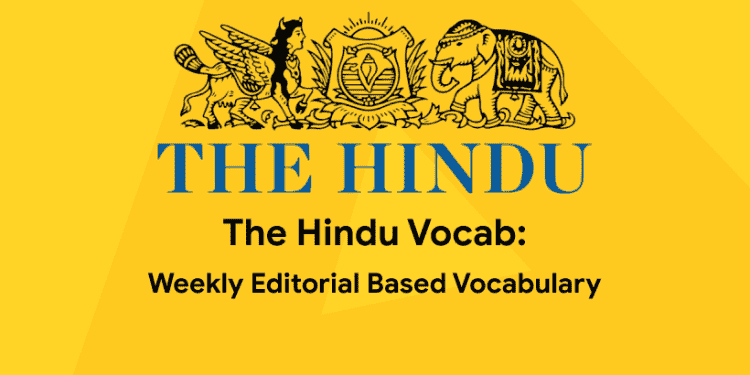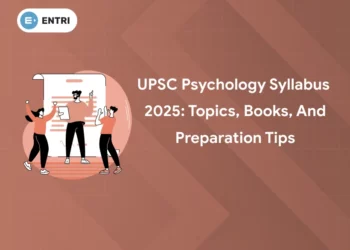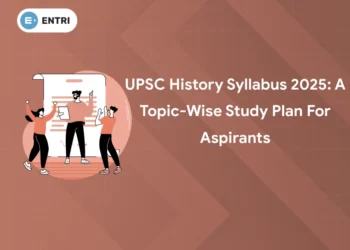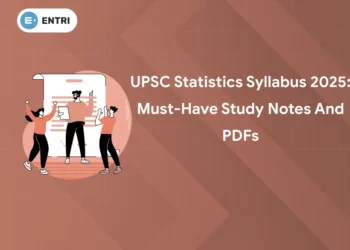We all know that English language plays a crucial role in competitive exams like PSC, SSC, Banking exams etc. So if you are aiming to crack those examination, you should have a strong command in your English language skills. Vocabulary is one of the most crucial topic of English subject. Vocabulary refers to all the words in a language that is known and used by a particular person. It is essential not only for competitive exams, but it is the fundamental tool for communication and acquiring knowledge. In order to help you in improving your vocabulary skills, Entri will provide you with Weekly English Vocabulary based on Hindu editorial every Friday. Reading the daily Hindu editorial is highly recommended for candidates who are aspiring for competitive exams. In this blog, we have given some questions based on Vocabulary with answer and solutions. Check here for Weekly English Vocabulary Based on Hindu Editorial 2020 January 17.
Get free Mock test for Government and Banking Exam!
Weekly English Vocabulary Based on Hindu Editorial 2020 January 17
1. Directions: For each of the words given below, a contextual usage is provided. From the alternatives given, pick the word that is the most appropriate as a substitute in the given context.
Obloquy: Not content with his role in that obloquy, he now seems determined to shame his state by clinging to office.
(a)Hoggishness
(b)Striate
(c)Opprobrium
(d)Approbation
(e)None of these
Solution:
Obloquy – state of disgrace resulting from public abuse or abusive language or a malicious misrepresentation of someone’s words or actions. (Opprobrium, vilification, vituperation)
2. Directions: For each of the words given below, a contextual usage is provided. From the alternatives given, pick the word that is the most appropriate as a substitute in the given context.
Sybarite: Simple as it is, their moist, flavorful banana bread will please even adamant sybarites.
(b)Manumit
(c)Fulminate
(d)Voluptuary
(e)None of these
Solution:
Sybarite – a person addicted to luxury and pleasures of the senses. (Voluptuary, hedonist, sensualist)
3. Directions: For each of the words given below, a contextual usage is provided. From the alternatives given, pick the word that is the most appropriate as a substitute in the given context.
Fulminate: Thunder fulminated around the house.
Solution:
Fulminate – explode violently or flash like lightning. (Detonate, explode, blow up)
4. Directions: For each of the words given below, a contextual usage is provided. From the alternatives given, pick the word that is the most appropriate as a substitute in the given context.
Appurtenances: When Mother was at home, she made him wear such appurtenances as a coat and a belt.
Solution:
Appurtenances – an accessory or other item associated with a particular activity or style of living (Paraphernalia, accessories, equipment)
5. Directions: For each of the words given below, a contextual usage is provided. From the alternatives given, pick the word that is the most appropriate as a substitute in the given context.
Mordant: Fun ranging from slapstick clowning to savage mordant wit.
Solution:
Mordant – harshly ironic or sinister. (Trenchant, caustic, acerbic)
6. Directions: For each of the words given below, a contextual usage is provided. From the alternatives given, pick the word that is the most appropriate as a substitute in the given context.
Sinecure: Global financial stability is worth a lot more than a sinecure.
(d)Masticate
Solution:
Sinecure – an office that involves minimal duties. (Doddle, cinch)
7. Directions: For each of the words given below, a contextual usage is provided. From the alternatives given, pick the word that is the most appropriate as a substitute in the given context.
Pedagogue: They present themselves as allies to the players rather than pedagogues.
(a)Demagogue
(b)Southpaw
(c)Tchotchke
(d)Educator
(e)None of these
Solution:
Pedagogue – someone who educates young people. (Educator, Professor)
8. Directions: For each of the words given below, a contextual usage is provided. From the alternatives given, pick the word that is the most appropriate as a substitute in the given context.
Pusillanimous: It would be disheartening at any time to be reminded that such pusillanimous thinking still exists.
Solution:
Pusillanimous – lacking in courage and strength and resolution; contemptibly fearful. (Timorous, cowardly, unmanly)
9. Directions: For each of the words given below, a contextual usage is provided. From the alternatives given, pick the word that is the most appropriate as a substitute in the given context.
Proclivity: In the early 1980s, Mugabe’s proclivity for violence was already evident.
Solution:
Proclivity – a tendency to choose or do something regularly; an inclination or predisposition towards a particular thing. (Propensity, predilection)
10. Directions: For each of the words given below, a contextual usage is provided. From the alternatives given, pick the word that is the most appropriate as a substitute in the given context.
Dilettante: If you seek to do many things, you’ll taste a wider variety of human goods, but you may end up a well-rounded mediocrity — a dilettante.
(d)Filch
(e)None of these
Solution:
Dilettante – an amateur who engages in an activity without serious intentions and who pretends to have knowledge or showing frivolous or superficial interest; amateurish. (Sciolist, dabbler, amateur)
We hope this blog was helpful for you in improving your knowledge in Vocabulary. Stay tuned with Entri for weekly vocabulary based on Hindu editorial, which will be published every Friday.













